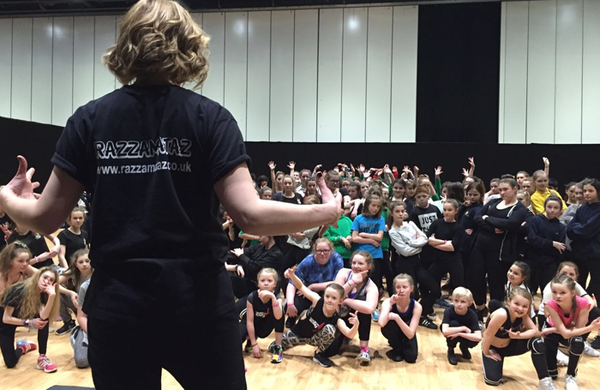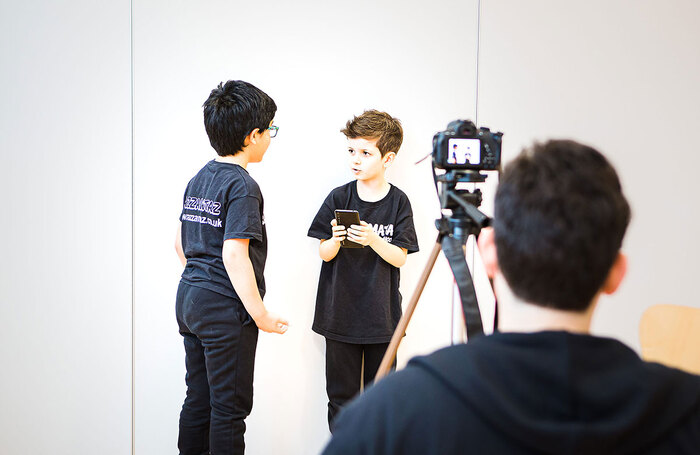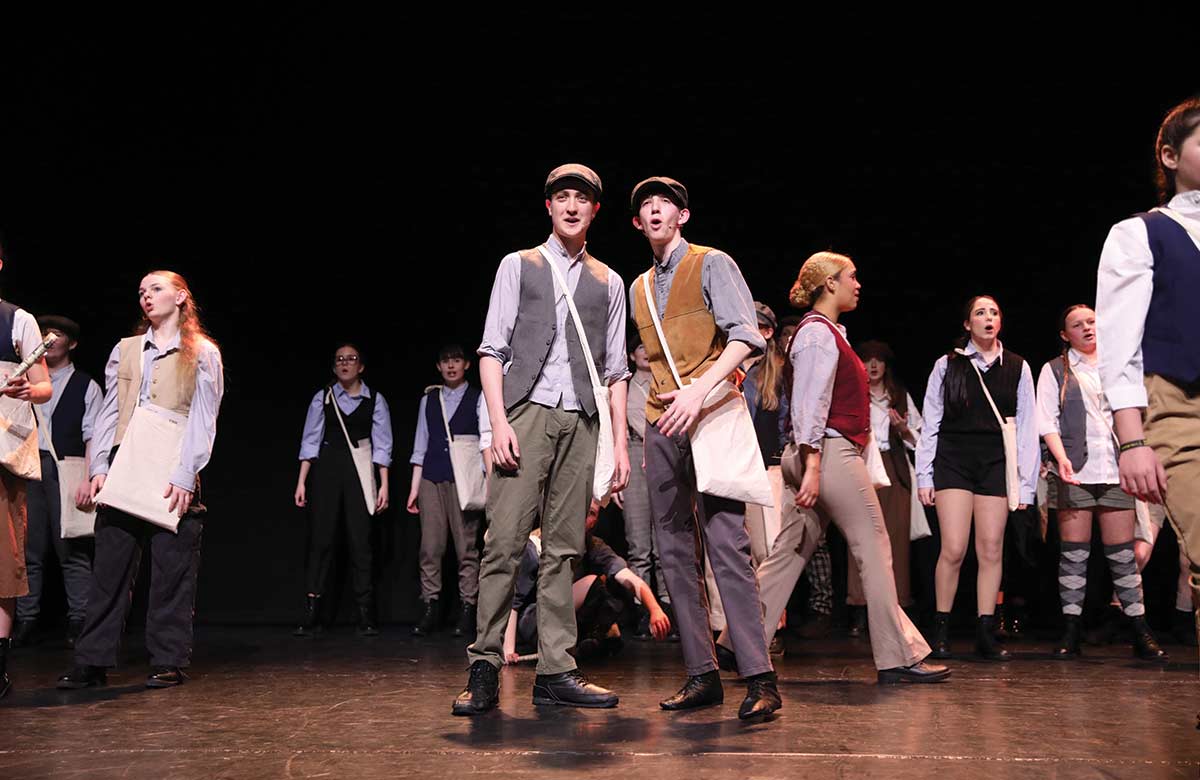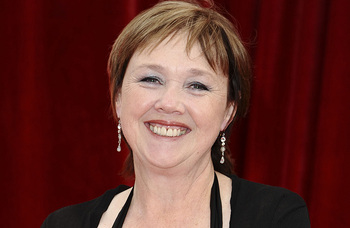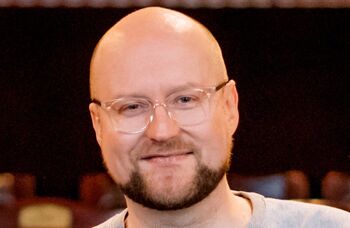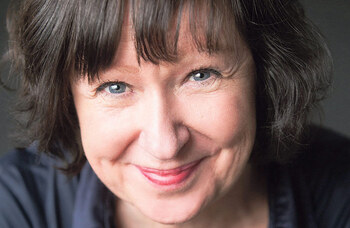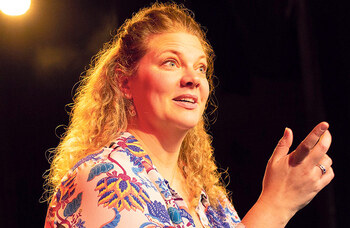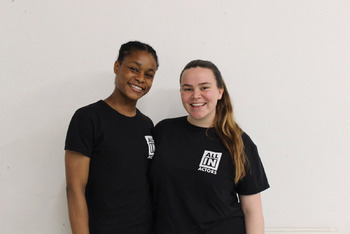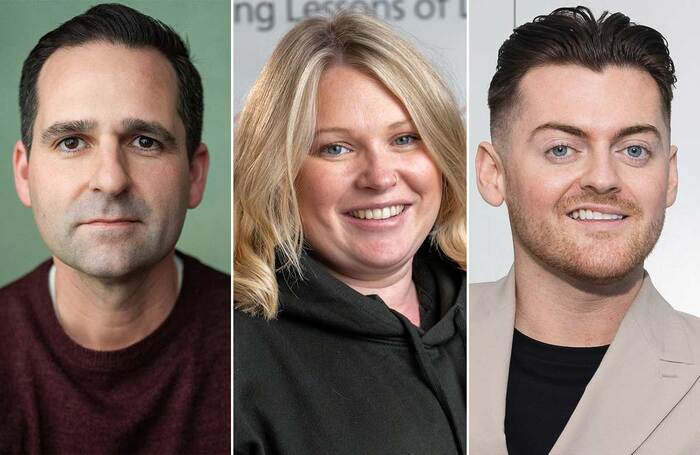
Meet the actors starting their own stage schools
Regardless of background and skill, taking on the mantle of a franchisee in one’s own right involves a learning curve. Michael French, Amy Matthews and Reece Donnelly talk to John Byrne about their experiences of running theatre schools
Every day is a school day. Actor, singer and dancer Michael French’s career has encompassed performing all over the UK and overseas including the West End, working with artists such as George Michael and a recent appearance playing a Toy Company executive in Greta Gerwig’s Barbie film. The latter role might be viewed as art imitating life since, off-screen, the actor actually does play an executive role as a theatre school franchisee with Razzamataz.
“I was in my early 30s doing a show in the Mayflower Theatre in Southampton. I remember looking in the mirror and thinking that my performing days were coming to an end and I didn’t have a plan moving forward. I knew a couple of people in the Razzamataz network, and they spoke very highly of it. I also remembered seeing the founder, Denise Hutton-Gosney, on Dragons’ Den. I knew nothing about advertising, building a market, creating a customer base, retaining customers or all the other things that it takes to build a school but I was reassured that there would be people to support me through the whole journey.”
‘Being a franchisee is incredibly rewarding. For example, we have just finished our annual showcase and the feedback from parents has been overwhelming’ – Michael French, principal, Razzamataz Barnet
French’s school in Barnet now serves about 130 students per season, with a second in nearby Potters Bar due to open in September.
“Being my own boss means that I can decide when and how I work, which has allowed me to take advantage of incredible opportunities and continue to perform professionally, but, aside from how it fits into my lifestyle, being a franchisee is incredibly rewarding. For example, we have just finished our annual showcase and the feedback from parents has been overwhelming.
“One family got in touch to say that their daughter has been going through a very difficult time but seeing her on stage was the first time that she looked like she was back to her old self.”
Continues...
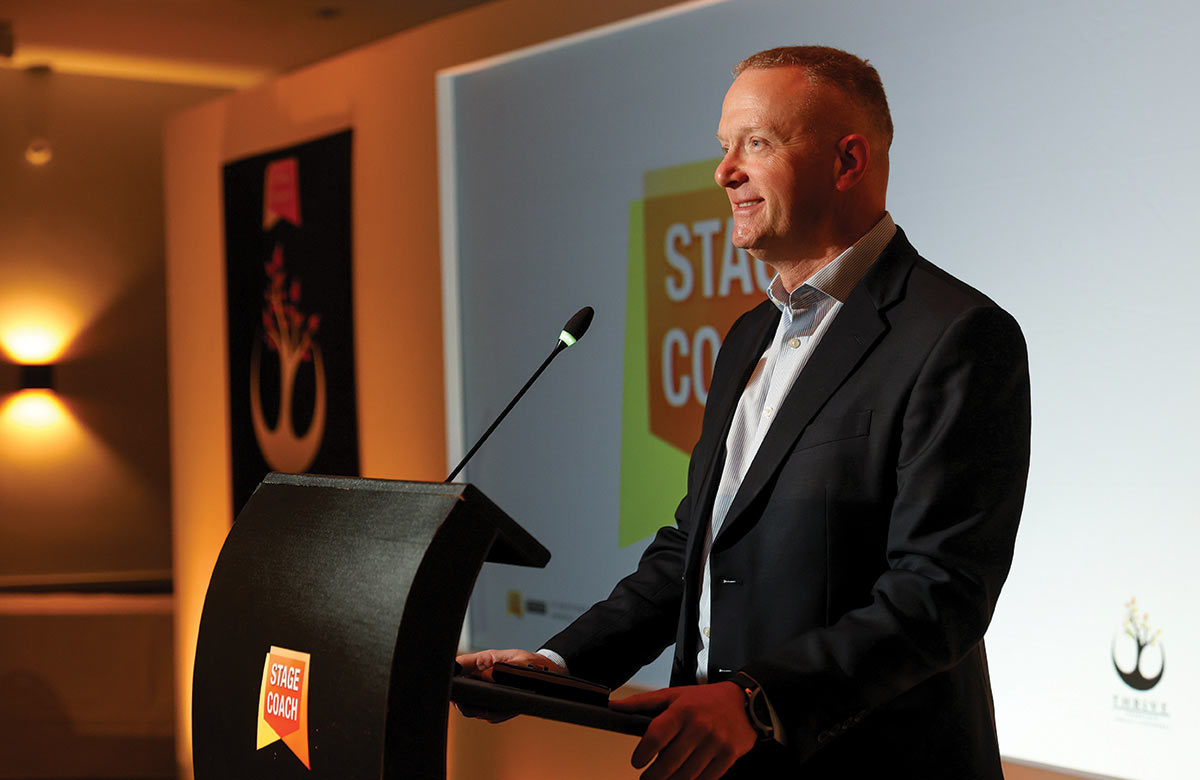
Amy Matthews, who runs the West Surrey branch of Little Voices, was already familiar with theatre school franchises while she pursued her own performing career.
‘When I decided to become a franchisee myself, Little Voices stood out. Its small class sizes mean you’re able to focus on each child’s confidence and social skills’ – Amy Matthews, principal of Little Voices West Surrey branch
“Having trained at Italia Conti, Mountview and PPA, my first work was in Pet Shop Boys musical Closer to Heaven, “ she says.
“I then travelled the world as a lead vocalist on Celebrity Cruises, before three years in Bat Out of Hell. Between shows, teaching was a constant and I worked for many companies. When I decided to become a franchisee myself, Little Voices stood out. Its class structure and small class sizes mean you’re able to focus on each child’s confidence and social skills, as well as their performing abilities.
“I especially love LAMDA exam days, where all the hard work over the past term comes to life. We make exams fun, and watching the children come out of the exam room all super excited proves they don’t find them at all daunting.”
Regardless of whether a performer has previous experience of working in theatre schools or not, every principal interviewed agrees that taking on the mantle of a franchisee in one’s own right involves a learning curve.
“There was a lot to take in initially during training week and for the first few months because everything you do is new to you,” recalls French.
“It’s a bit of a shock to the system to start with, but I just followed the step-by-step plan. There’s so much to learn but little by little it becomes second nature. In business, you must be patient because challenges will crop up. Learning to deal with them in a humble way will result in success and will make you a better business person in the long run.”
Matthews is in agreement that while franchises can provide a road map, following that map will be a personal journey of discovery for each individual school owner: “I’ve learned to take risks, and not to worry about making a mistake.”
Continues...
Meanwhile in Scotland, performer and theatre school founder Reece Donnelly is preparing to take a big step forward in his own journey. Having successfully launched Theatre School of Scotland in 2017 with sites in Glasgow, Edinburgh and Greenock, he will shortly be opening the brand to franchisees across the UK.
His own career path has given him a particularly keen insight into the needs of young performers: “I started in kids telly at about nine years old on Carrie and David’s Popshop! for CBBC. Then I joined Waterloo Road at 16 years old.”
‘The first 18 months of a new school are about creating a culture that students want to be part of and parents feel comfortable with’ – Reece Donnelly, Theatre School of Scotland founder
After drama school he found himself back in the world of children’s television, this time as a coach for young actors.
“Once I started coaching professional child actors, I saw the gap to train the next generation of talent, and that’s how Theatre School of Scotland was born.
“Now I split my time between Scotland and London as a TV presenter working on shows like Good Morning Britain and Talk TV, while being very involved in the school.
“I’m a firm believer in learning by doing rather than just reading a manual. The luxury for our new franchisees is that with three schools in Scotland all in different locations and seven years of track record, the road map is there and this is a really good time to get involved as we’ll be growing together and are very invested in making sure our franchisees succeed.”
Donnelly feels relationships are a key feature of any successful theatre school or franchise. “People are people and people buy people and building a brand in the earlier years is so much more important than building a business,” he says.
“I think the first 18 months of a new school are about creating a culture that students want to be part of and parents feel comfortable with.”
French, too, stresses the importance of building relationships both business and interpersonal: “I’ve seen how much young people benefit from performing arts, building resilience, creating friendships and so many life skills from teamwork to collaboration. I truly believe it prepares them so well for their futures in many different areas.
“As for me, becoming a school owner has made me even more committed to continuing my own personal development and learning, which is a benefit to every part of my life. I love the industry just as much as when I first left college and I’m grateful to still be part of it.”
Opinion
Recommended for you
Advice
Recommended for you
Most Read
Across The Stage this weekYour subscription helps ensure our journalism can continue
Invest in The Stage today with a subscription starting at just £5.99
 John Byrne
John Byrne